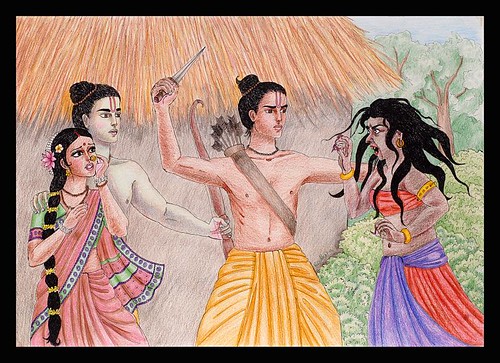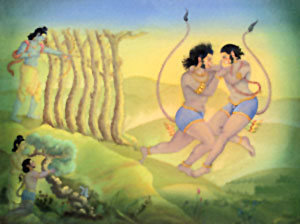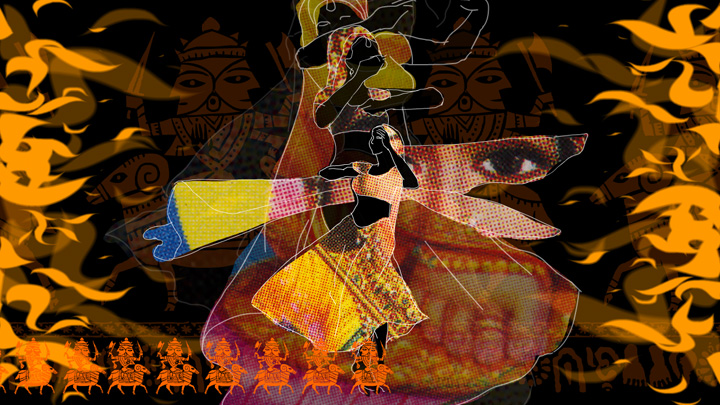 I have always been a big fan of reading novels, mostly fictions, though these days I am more into the science non fictions like the code book, the man who knew infinity, outliers, innumeracy etc. However, I have always had a fascination with the fiction novels as they paint a world with around me with words which makes me forget the real world for a while. So, after I heard so much about the book "The palace of illusions" which was also recommended to me by many people including my sister and friends, I thought of giving that book a chance afterall.
I have always been a big fan of reading novels, mostly fictions, though these days I am more into the science non fictions like the code book, the man who knew infinity, outliers, innumeracy etc. However, I have always had a fascination with the fiction novels as they paint a world with around me with words which makes me forget the real world for a while. So, after I heard so much about the book "The palace of illusions" which was also recommended to me by many people including my sister and friends, I thought of giving that book a chance afterall.The main reason of picking up this book was that people highly recommended it as a must-read. I had expected this book to be the narration of the story of Mahabharata, the one that most of us have read or seen on TV, but from the perspective of Draupadi, one of the main characters of this epic without whom there would have been no war. I expected this book to paint me a picture of what her heart felt, I wanted to feel the anger, the agony, the shame, the betrayal and all that she felt when going through different phases of her life. However, in my opinion, this book fell short of it.
 The book starts with the story of unexpected birth of princess Draupadi from the fires of the prayer along with her brother Dhrishtadhumna for whom actually the prayers were offered. She was the one who would "change the course of history". The book started with Draupadi as a princess growing in the confinements of her father's palace waiting to make a change. The book then shapes Draupadi as a girl who against everyone's wishes gets education same as her brother for quiet some time. She wants to b a hero - she wants a different heroic name, a big palace, great jewels and exquisite sarees. She then talks to Vyasa who gives her three warnings about her future, which if she remembered, she could have avoided all the troubles in future. However she didn't take them seriously. She rebels when unnecessary but conforms when she needs to rebel.
The book starts with the story of unexpected birth of princess Draupadi from the fires of the prayer along with her brother Dhrishtadhumna for whom actually the prayers were offered. She was the one who would "change the course of history". The book started with Draupadi as a princess growing in the confinements of her father's palace waiting to make a change. The book then shapes Draupadi as a girl who against everyone's wishes gets education same as her brother for quiet some time. She wants to b a hero - she wants a different heroic name, a big palace, great jewels and exquisite sarees. She then talks to Vyasa who gives her three warnings about her future, which if she remembered, she could have avoided all the troubles in future. However she didn't take them seriously. She rebels when unnecessary but conforms when she needs to rebel.  In the chapter called cosmology, she says that she would teach her sons to be survivors and that battles were unnecessary and there were other ways for glory which implies that she too doesn't believe in battles to resolve issues or as a way to take revenge. However, when she is humiliated in Duryodhana's court, she too declares a war to avenge from all who did wrong to her. So in my opinion, opposite to my expectations, Draupadi has been portrayed as an ordinary woman. There is that one guy in her life whom she wants but could not marry, Karna. Then there is her obsession with her palace "The palace of illusions", its gardens, what saree and jewellery to wear on what occasion, her bickering with Kunti (mother-in-law), her attempts to have more control over her husbands than Kunti, her jealousy from her husband's other wives, throwing tantrums daily etc.
In the chapter called cosmology, she says that she would teach her sons to be survivors and that battles were unnecessary and there were other ways for glory which implies that she too doesn't believe in battles to resolve issues or as a way to take revenge. However, when she is humiliated in Duryodhana's court, she too declares a war to avenge from all who did wrong to her. So in my opinion, opposite to my expectations, Draupadi has been portrayed as an ordinary woman. There is that one guy in her life whom she wants but could not marry, Karna. Then there is her obsession with her palace "The palace of illusions", its gardens, what saree and jewellery to wear on what occasion, her bickering with Kunti (mother-in-law), her attempts to have more control over her husbands than Kunti, her jealousy from her husband's other wives, throwing tantrums daily etc.  Then there are a few major parts of the book where Draupadi, who calls herself a rebel, is shown as a helpless woman and at mercy of men in her life. First, she gets married to Arjun after the swayamvar and Kunti asks the five brothers to divide equally among themselves, she doesn't speak up but expects Arjun to stand up for her against his mother saying this is unacceptable. Then in Duryodhana's court when she was humiliated, she first expects Karna, then grandfather Bheeshma and then the other men in the court to stand up for her. She even thinks that falling at Karna's feet might have helped her in this situation but she was too proud to do that. Here my point is that she doesn't even attempt to speak up or fight for herself and yet, at the end of the book, she calls herself a rebel.
Then there are a few major parts of the book where Draupadi, who calls herself a rebel, is shown as a helpless woman and at mercy of men in her life. First, she gets married to Arjun after the swayamvar and Kunti asks the five brothers to divide equally among themselves, she doesn't speak up but expects Arjun to stand up for her against his mother saying this is unacceptable. Then in Duryodhana's court when she was humiliated, she first expects Karna, then grandfather Bheeshma and then the other men in the court to stand up for her. She even thinks that falling at Karna's feet might have helped her in this situation but she was too proud to do that. Here my point is that she doesn't even attempt to speak up or fight for herself and yet, at the end of the book, she calls herself a rebel.However, there have been a few portions of the book which I really liked. When Shikhandi says to Draupadi when they meet for the first time "Remember that, little sister: wait for a man to avenge your honor, and you'll wait forever", when Krishna says to Draupadi "A problem becomes a problem only if you believe it to be so. And often others see as you see yourself". When she is asked to stay with each husband for one year, she doesn't argue but detests the fact that she is being passed among the five brothers one by one like a communal drink without as much having a choice. When she is given a boon of restored virginity each year, she says that the boon is for the benefit of her husbands and not hers. She would rather have a boon of forgetting so that when she went to each brother, she would be free of the memories of the previous one. Another impressive part of the book was when she was being humiliated in Duryodhan's court, she is not affected by the 'shame' when she was being disrobed. she thinks "Let them stare at my nakedness. Why should I care. They and not I should be ashamed of shattering the bounds of decency".


.jpg)












